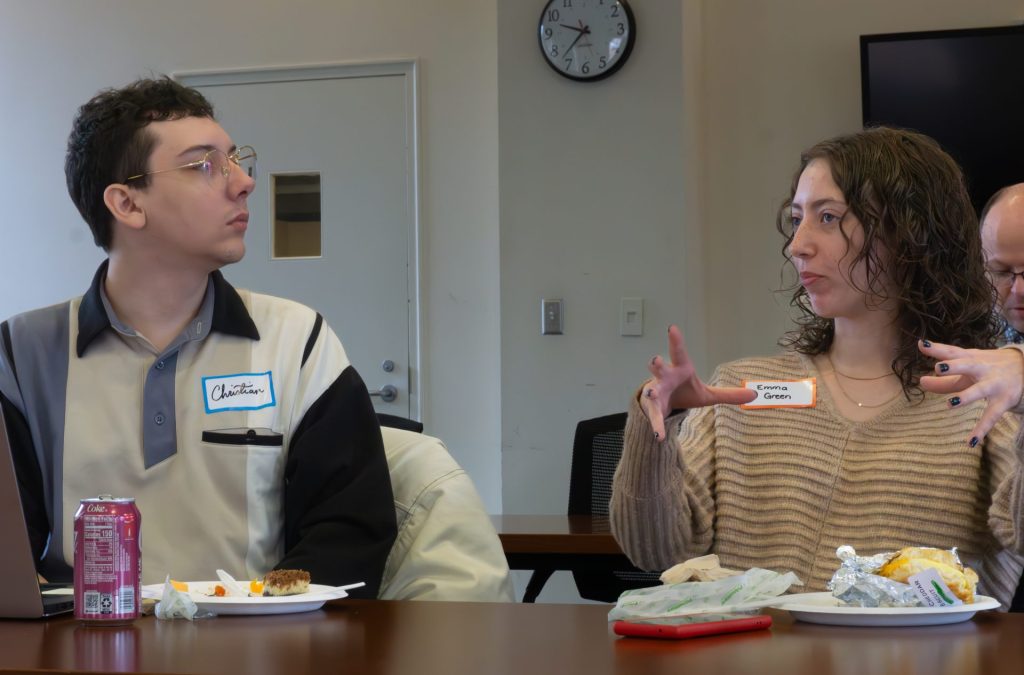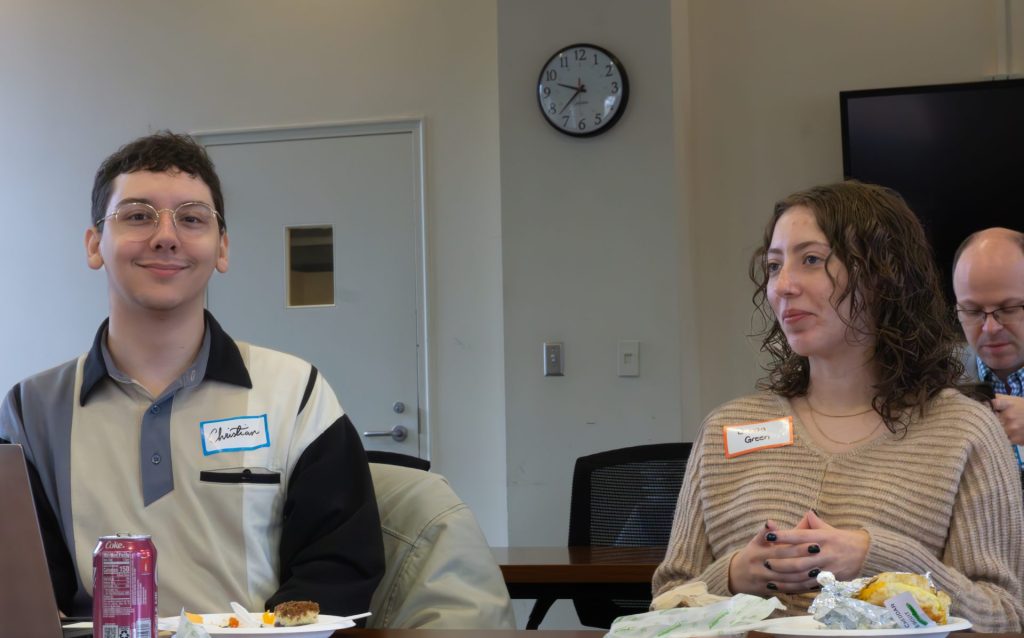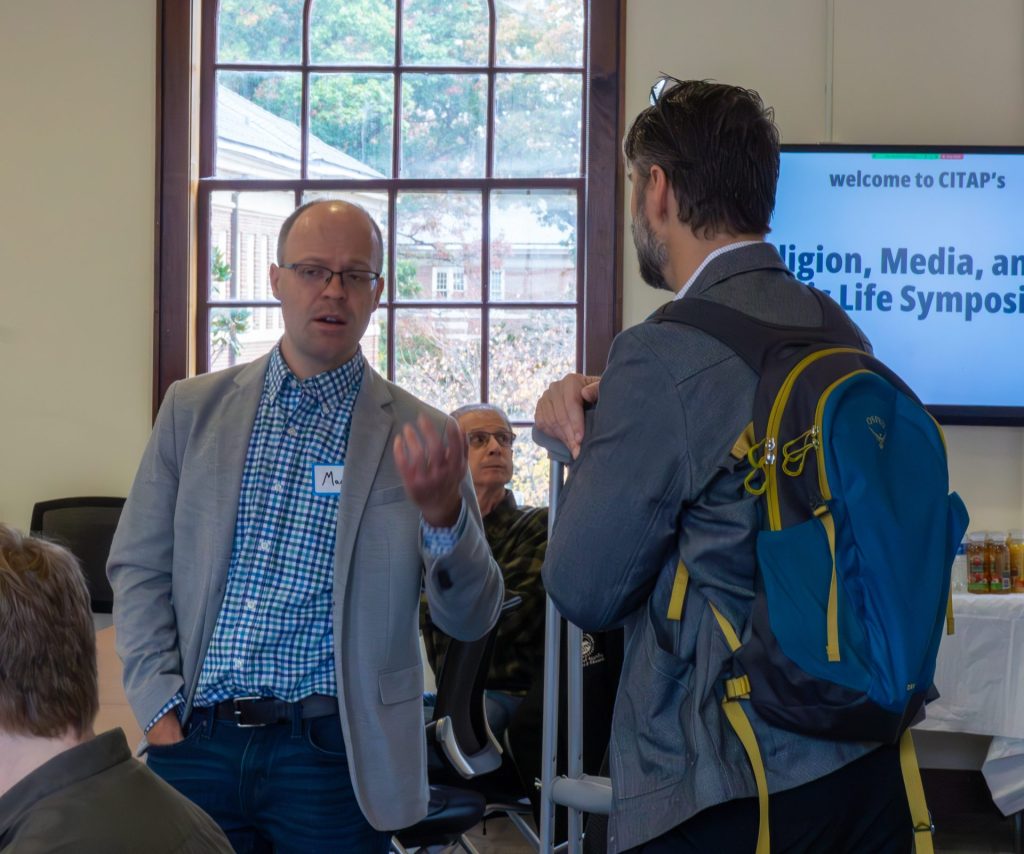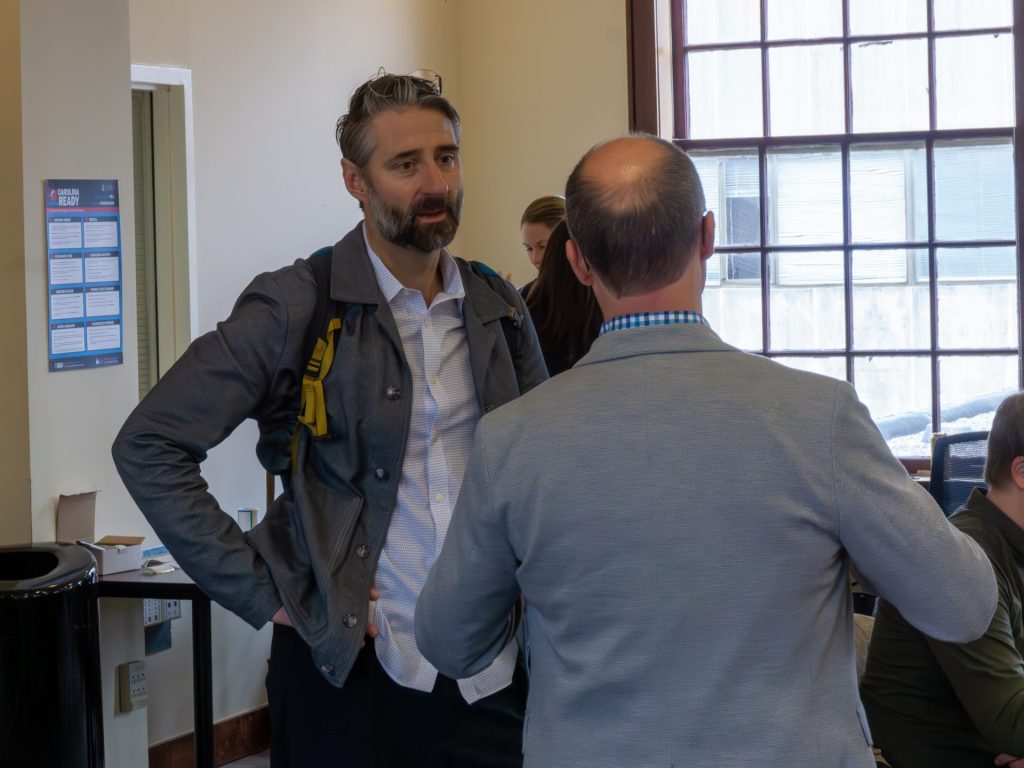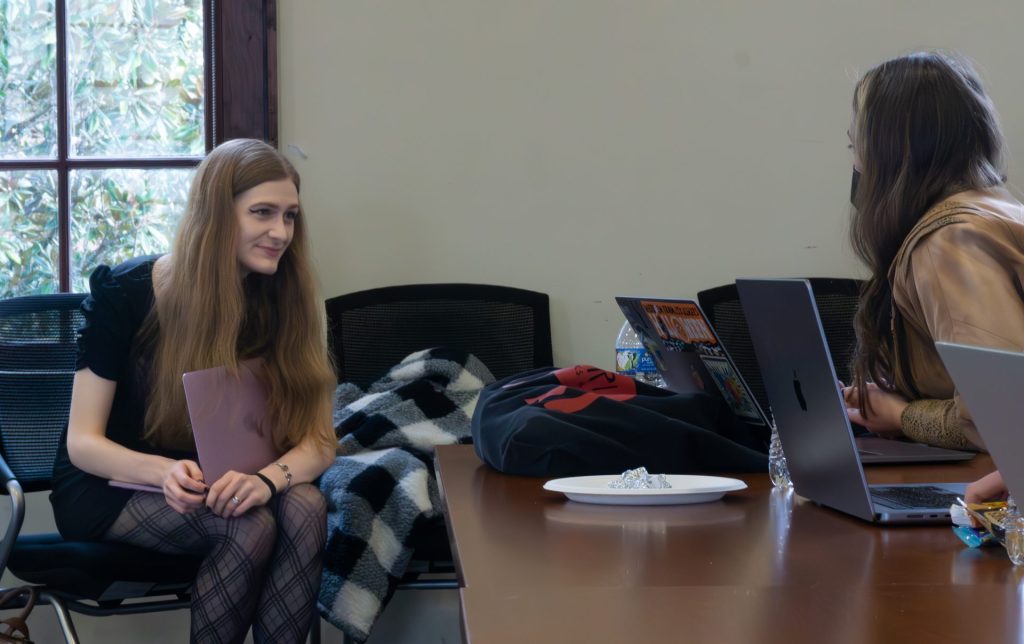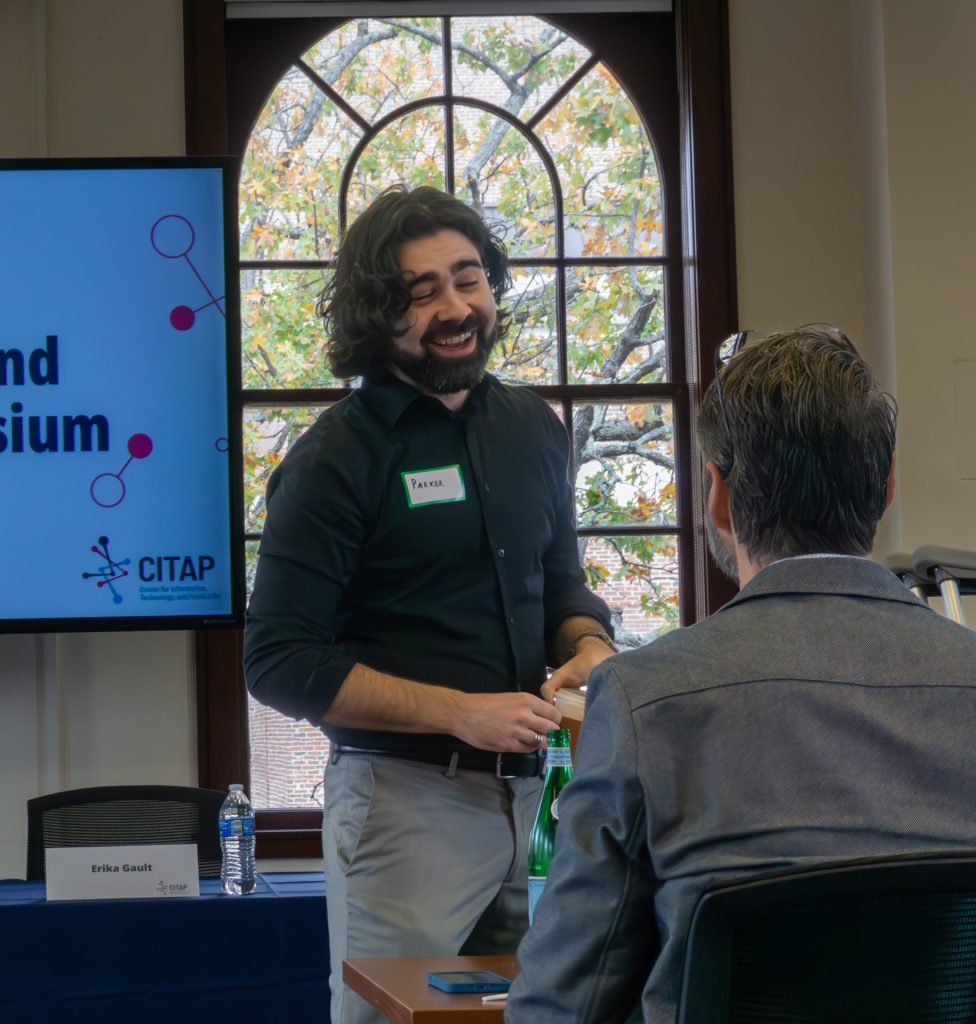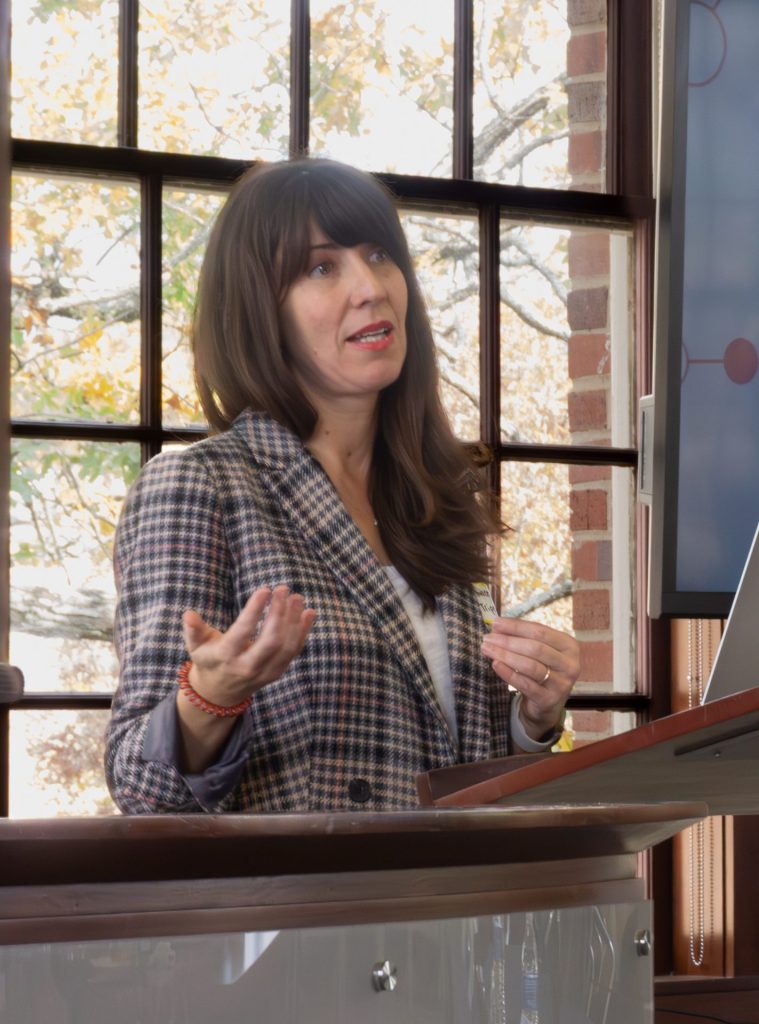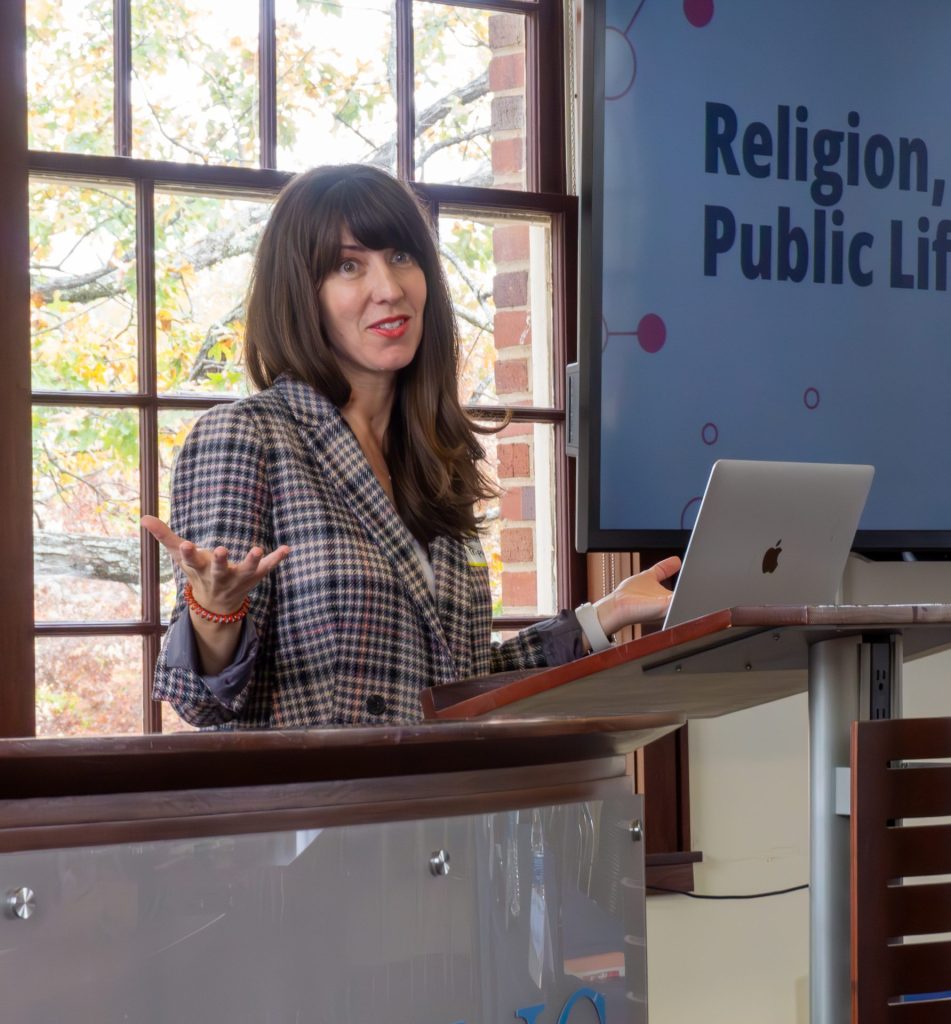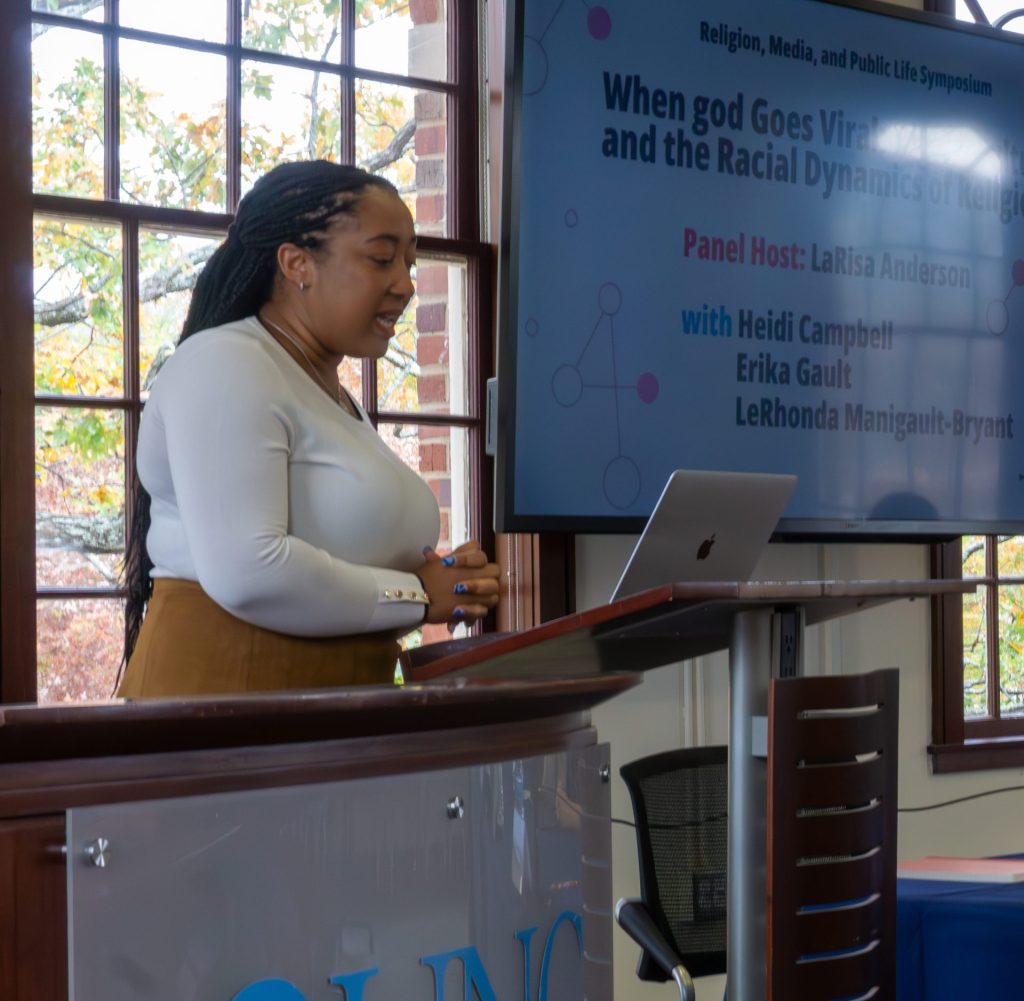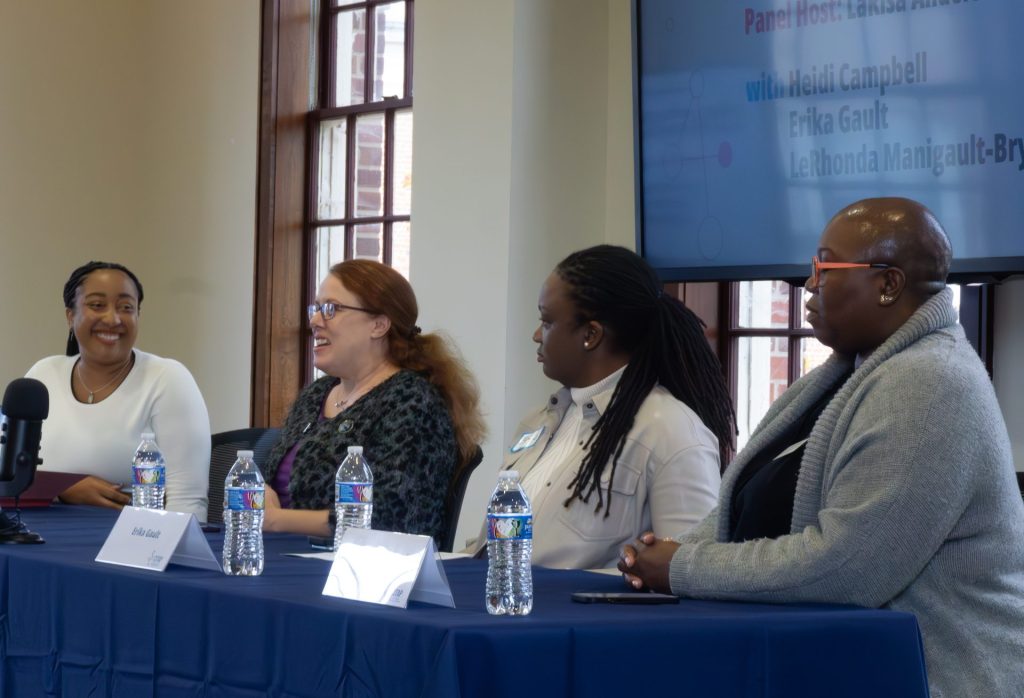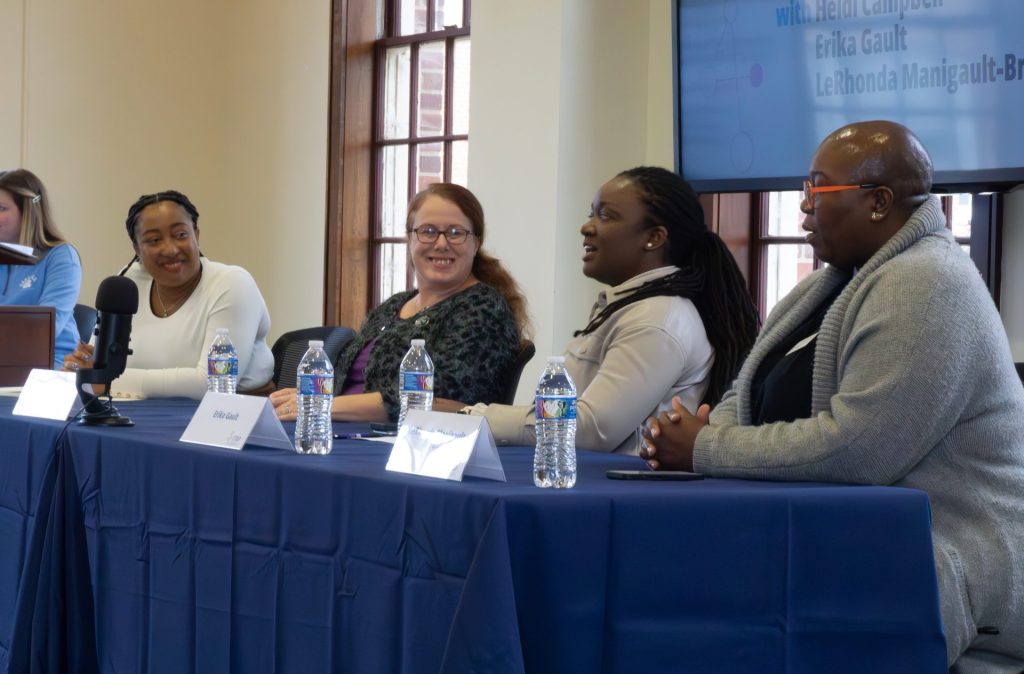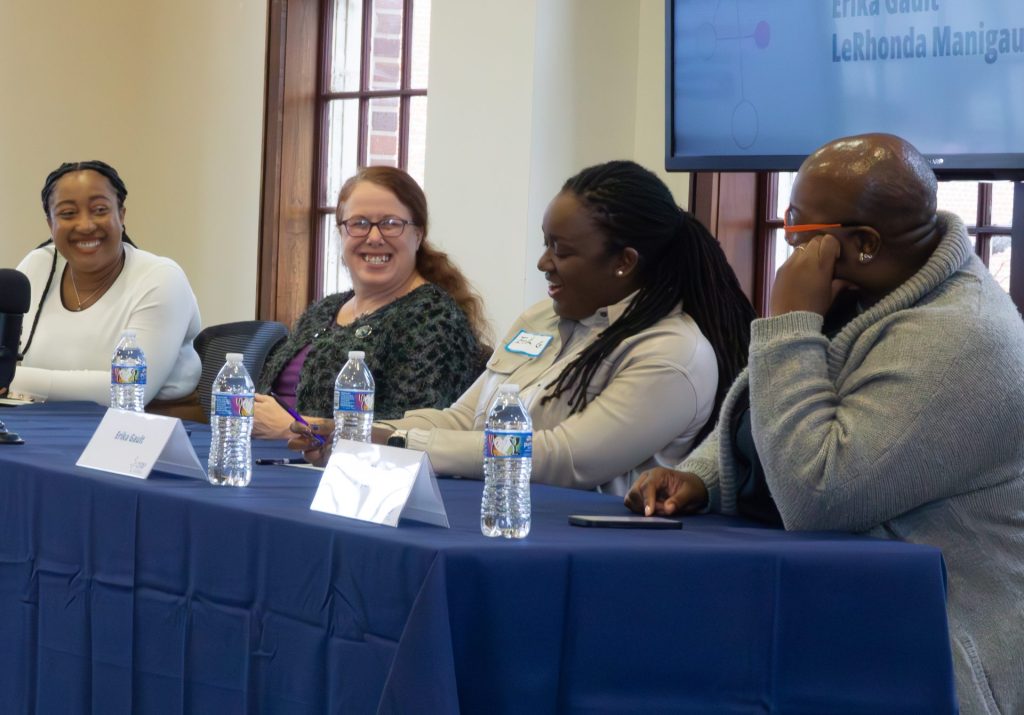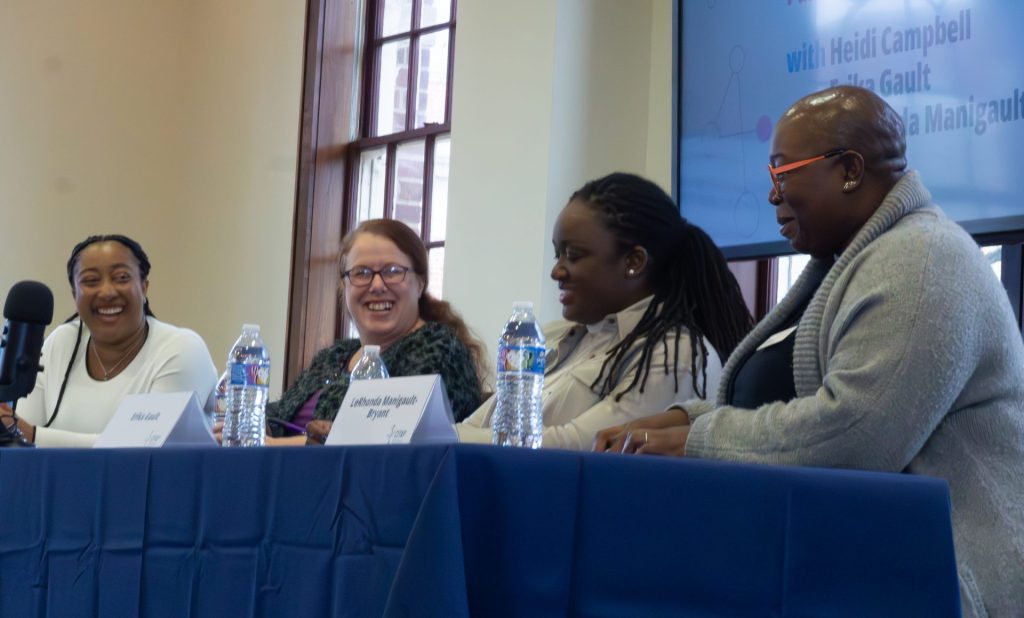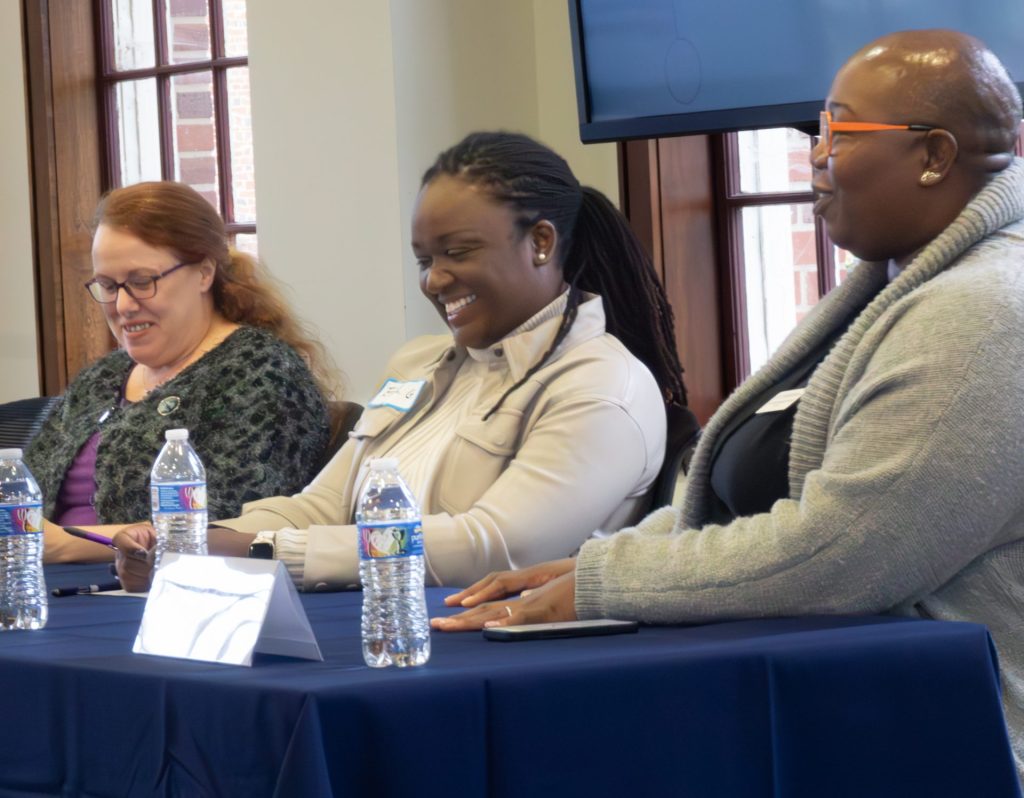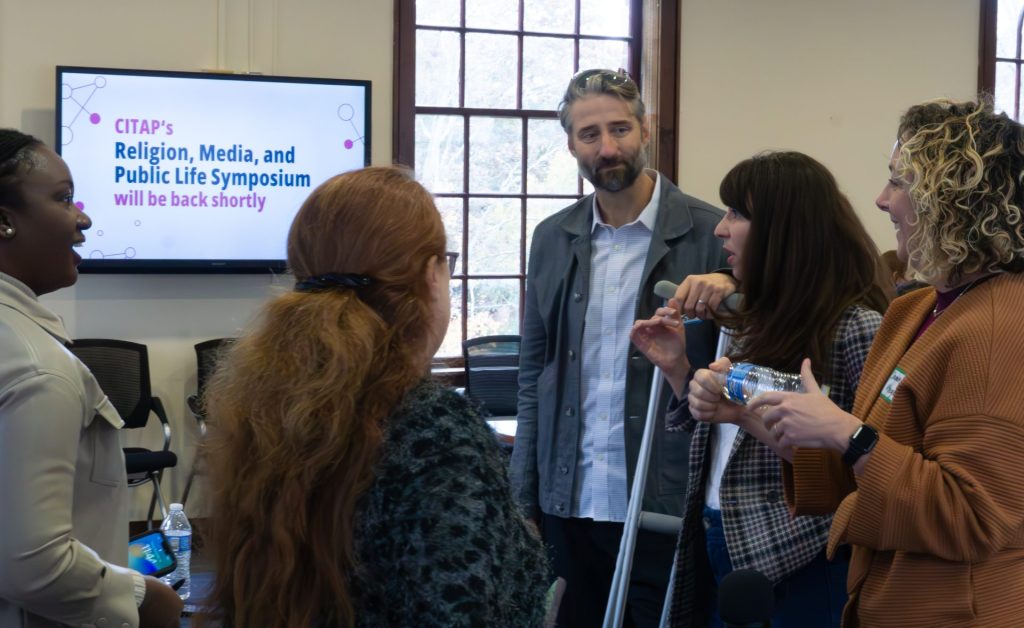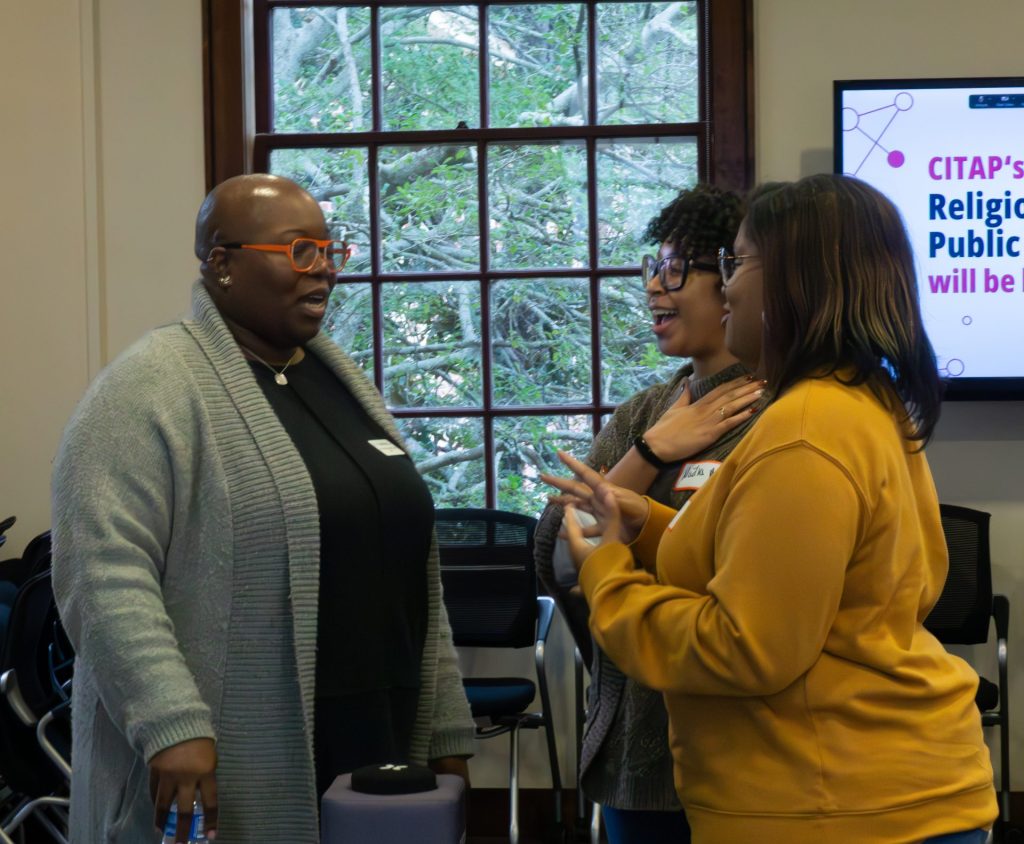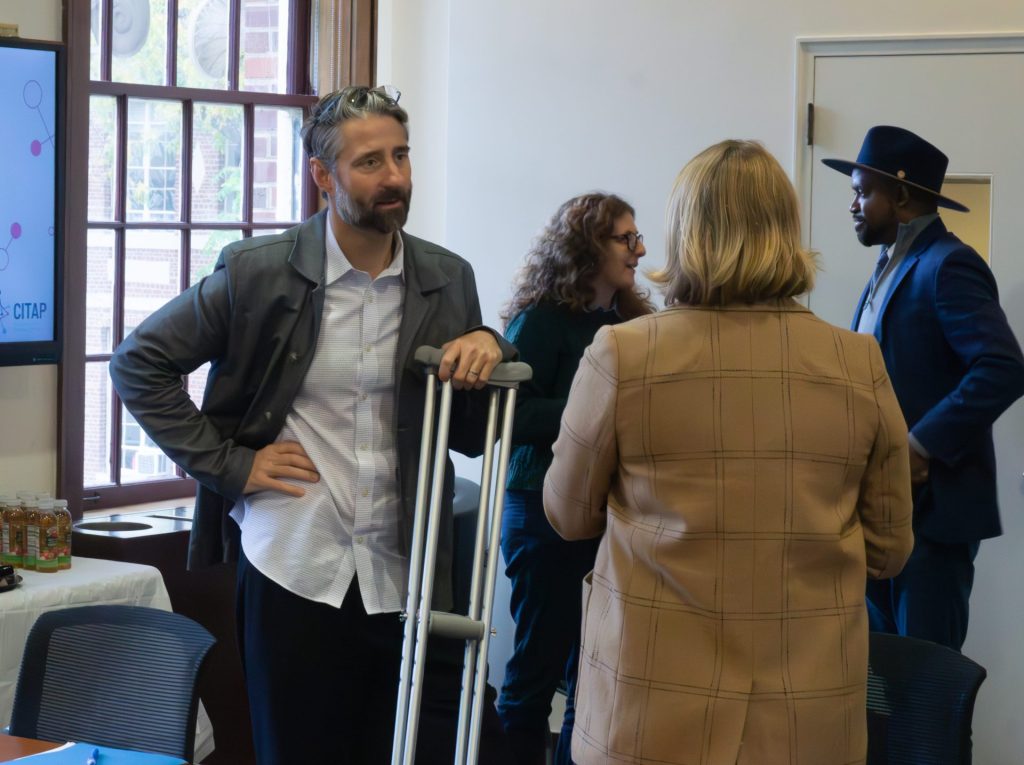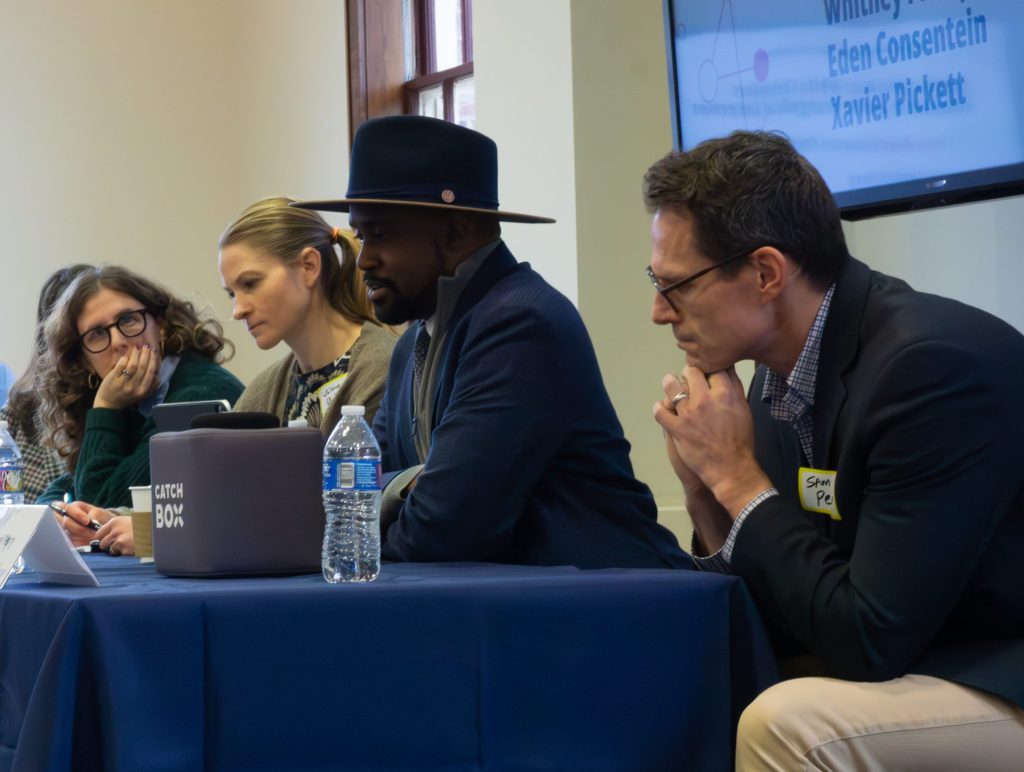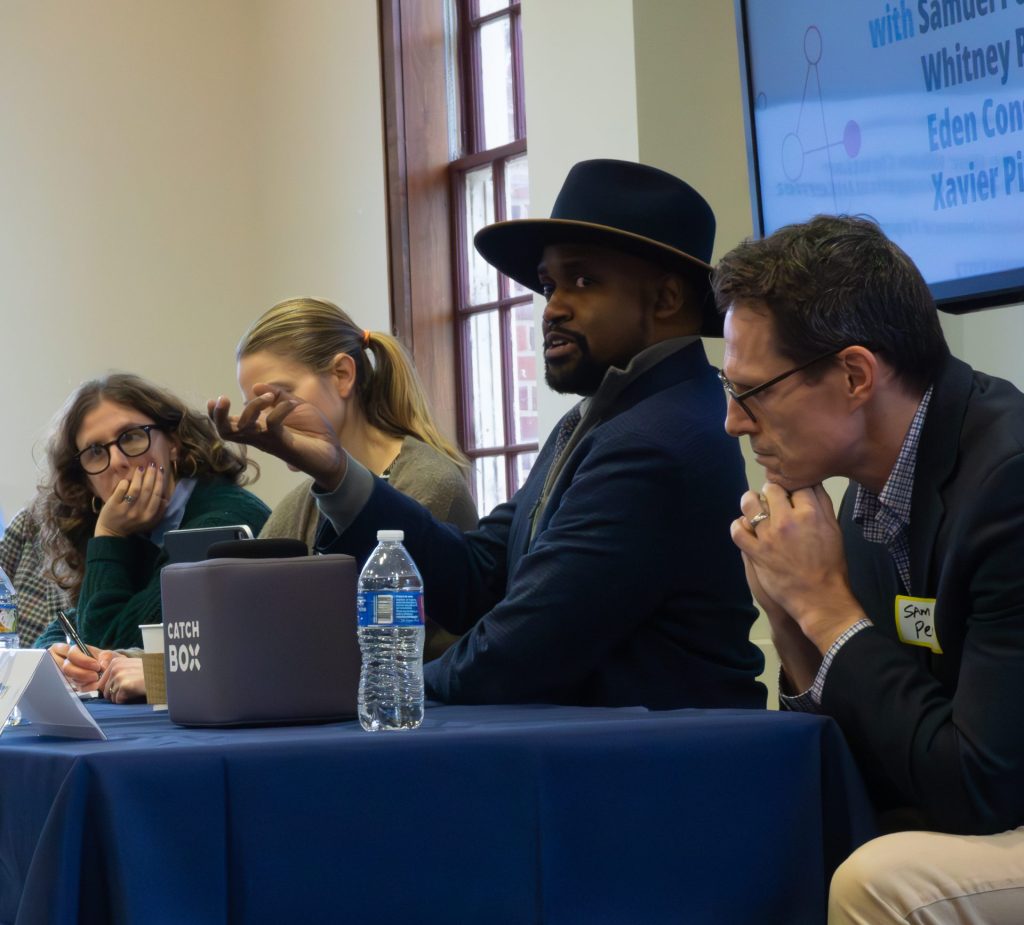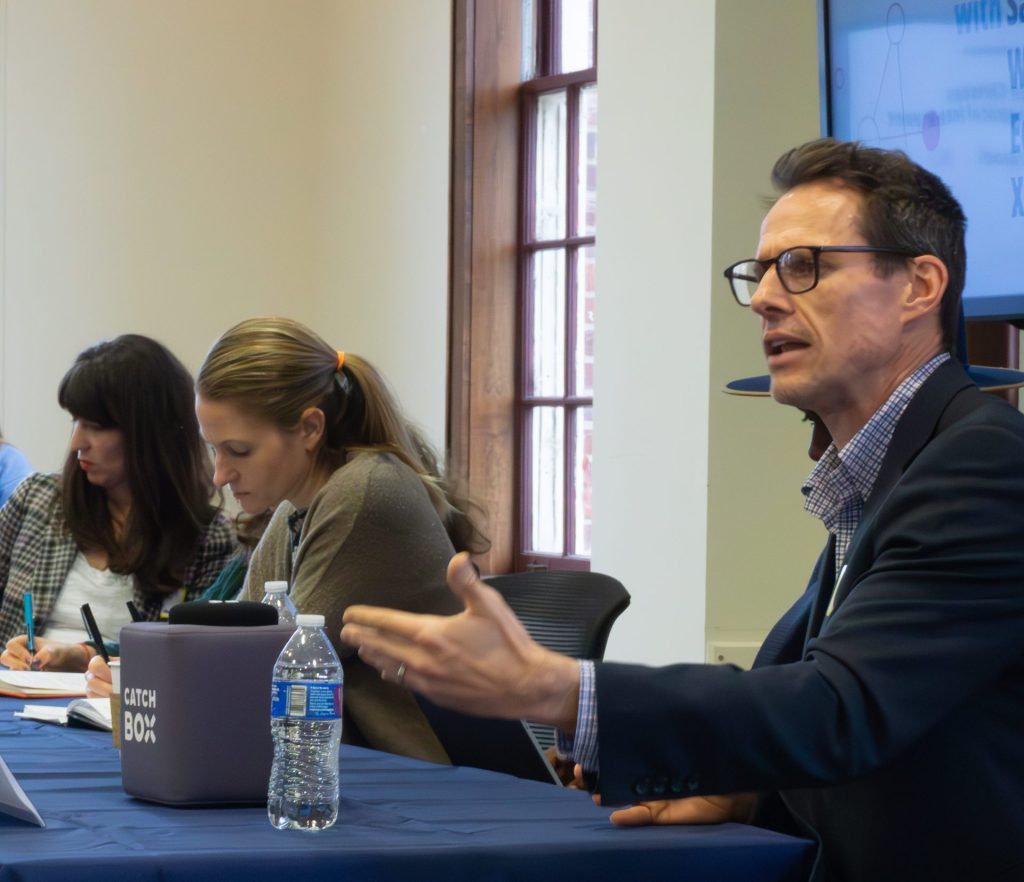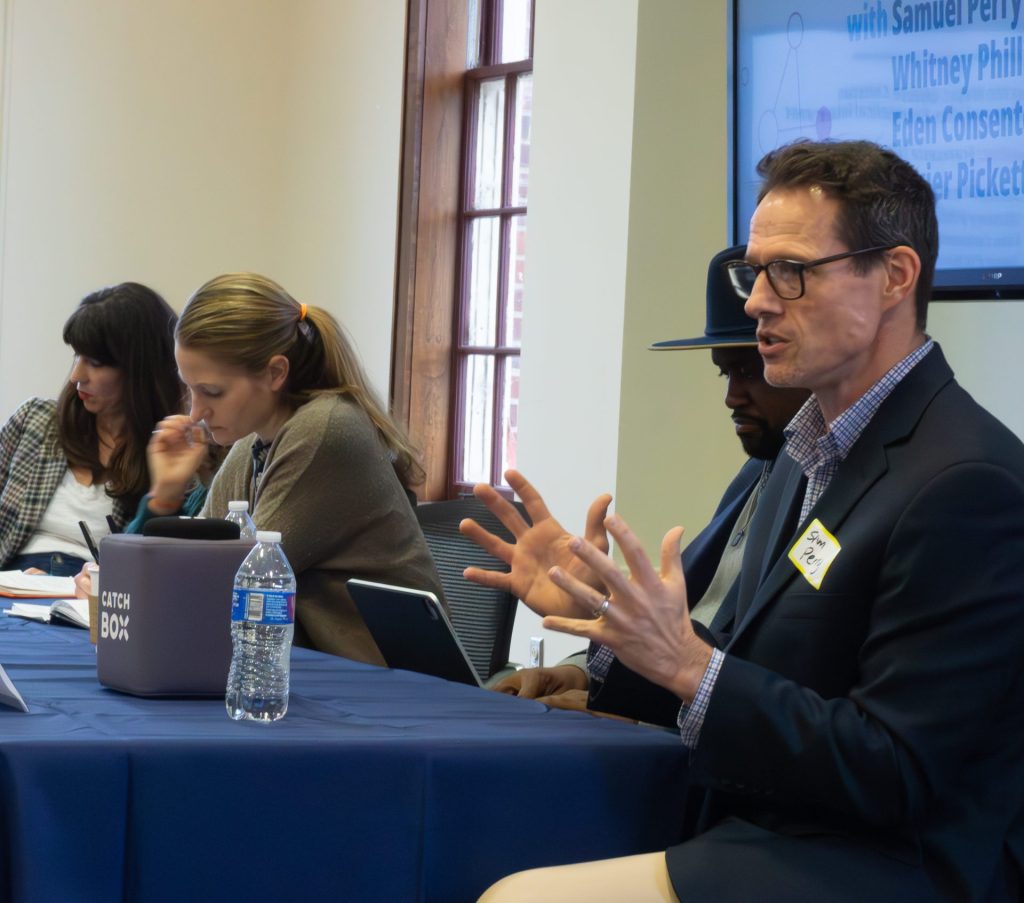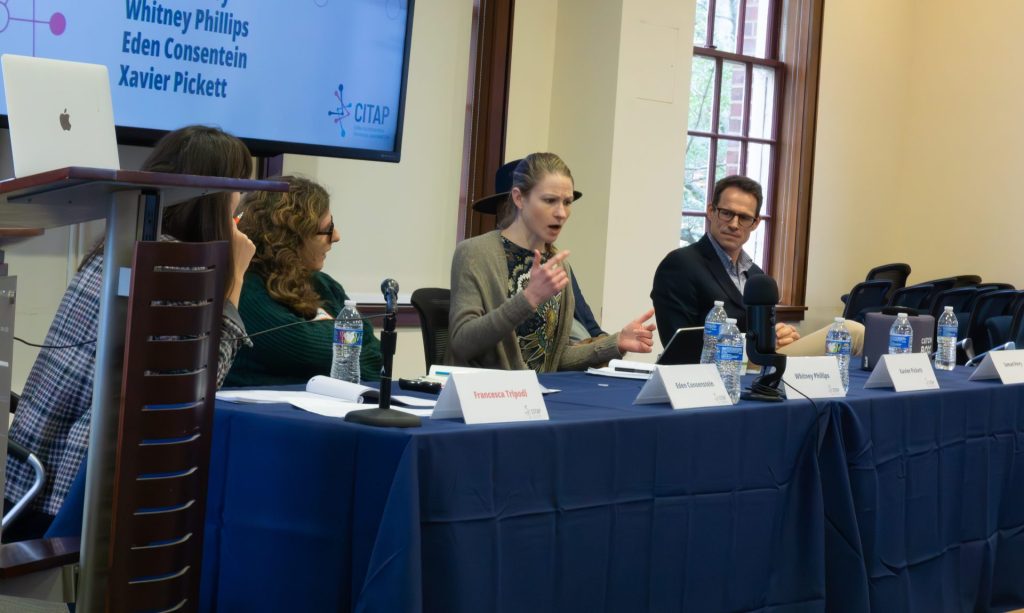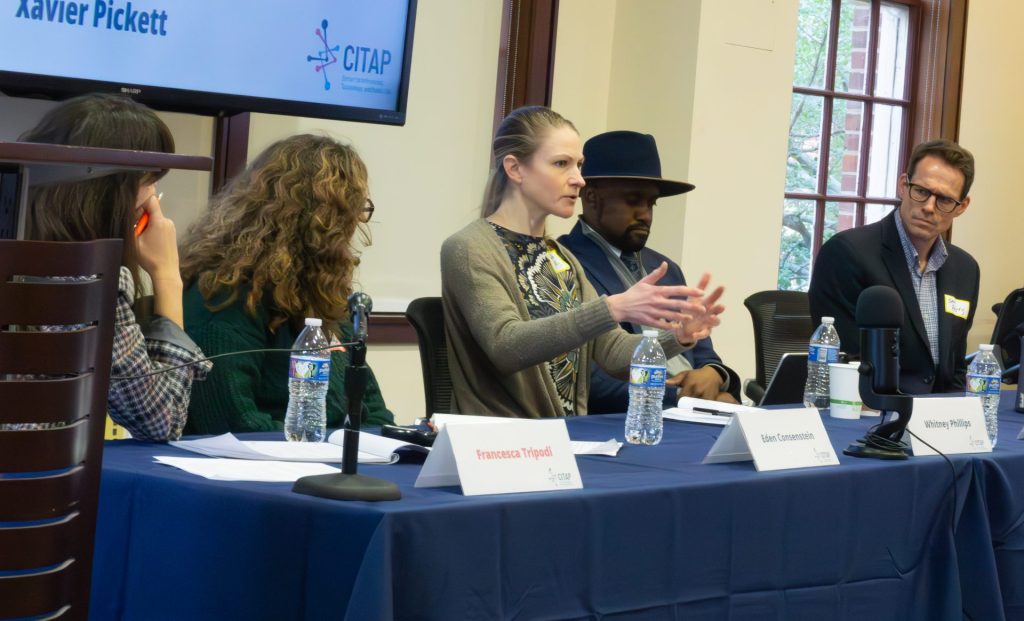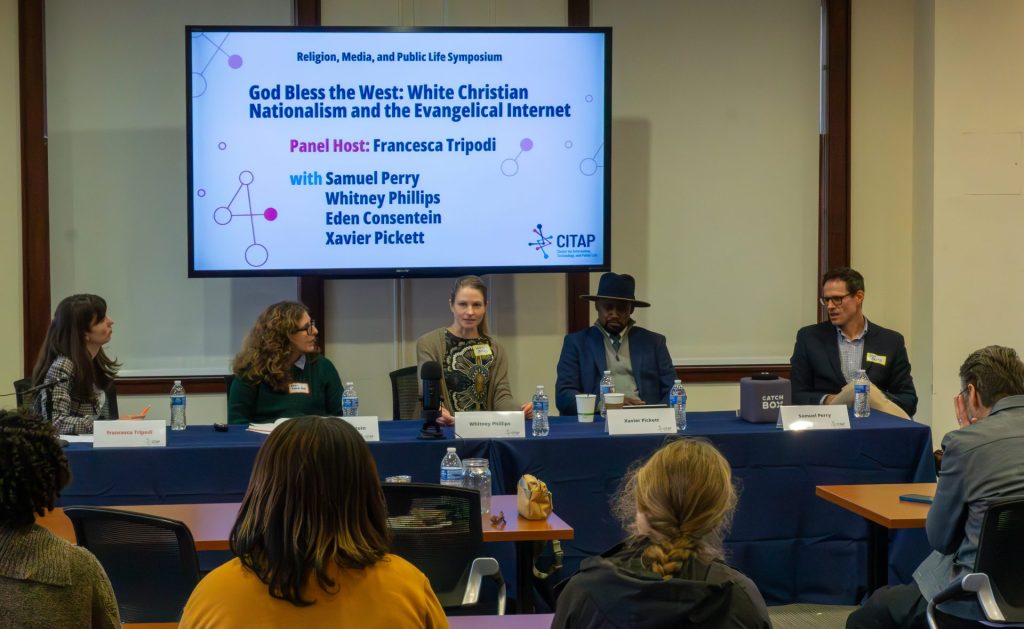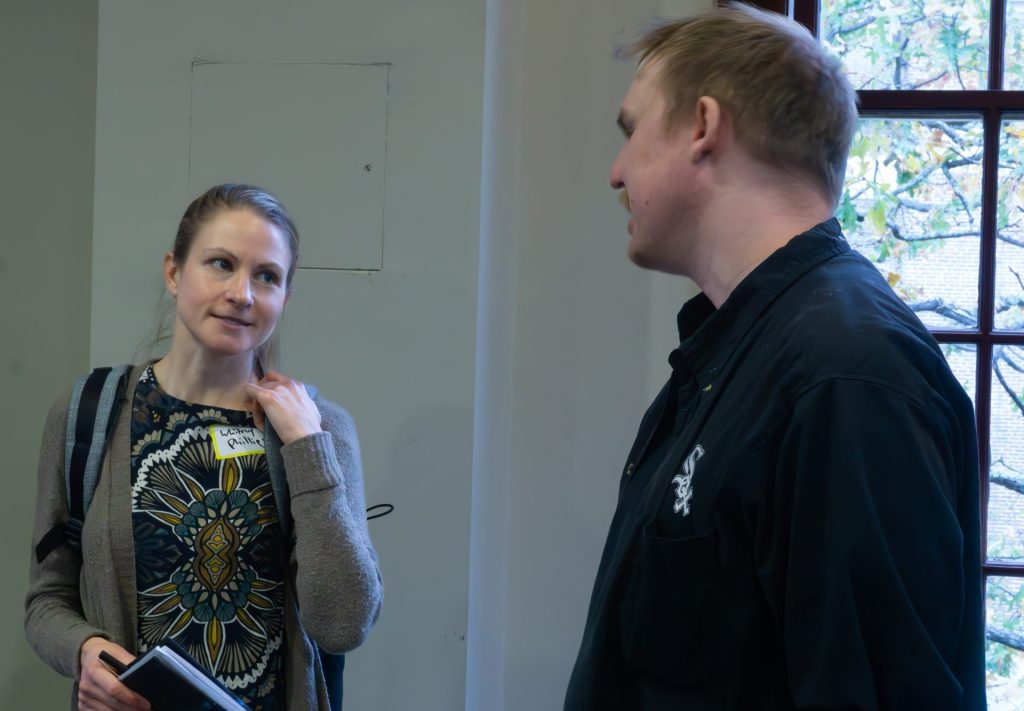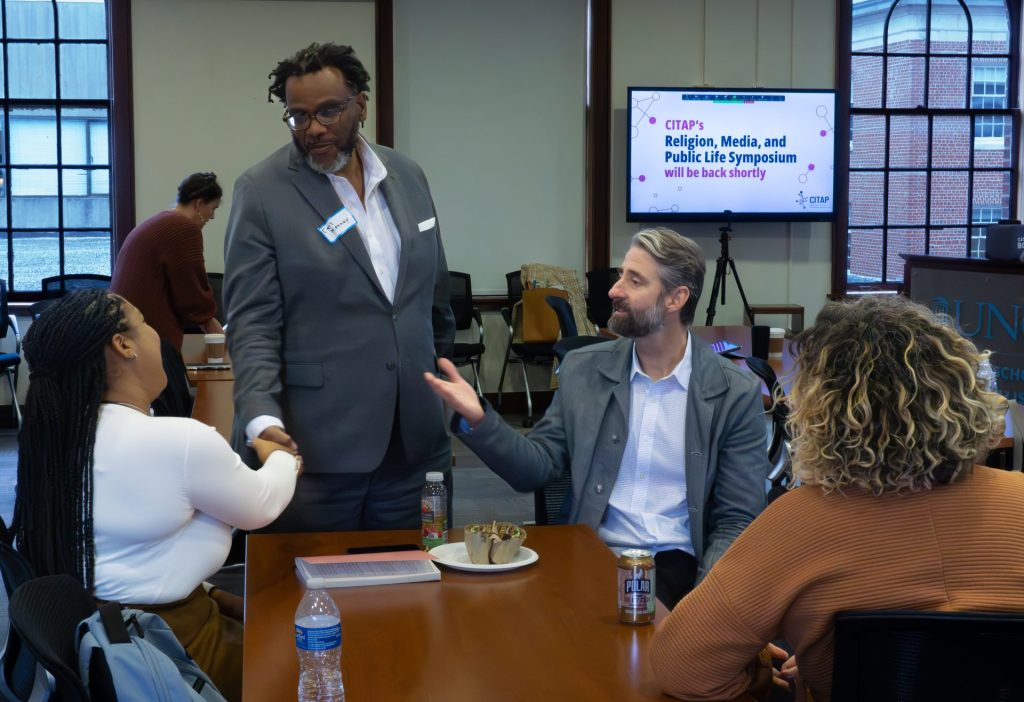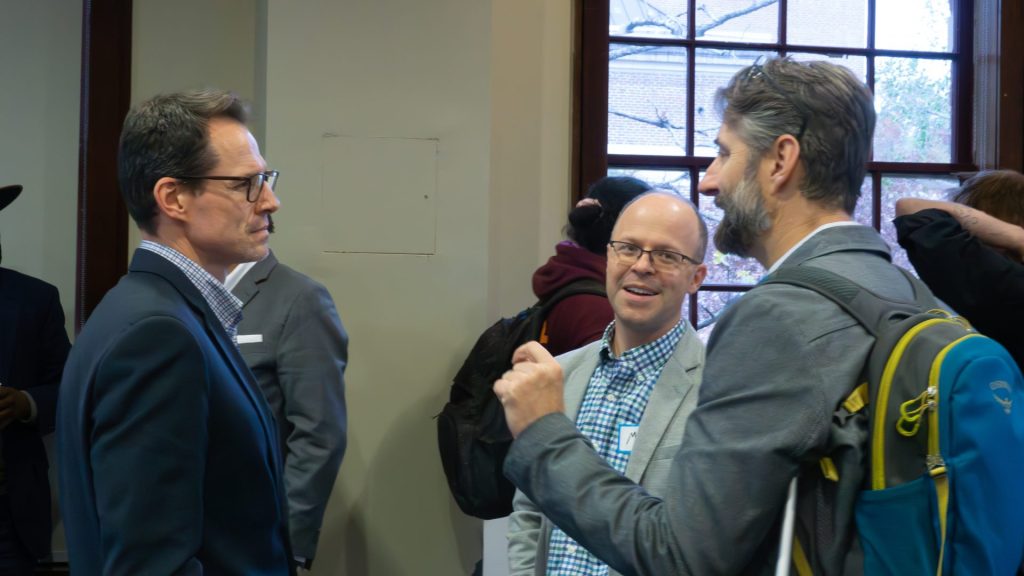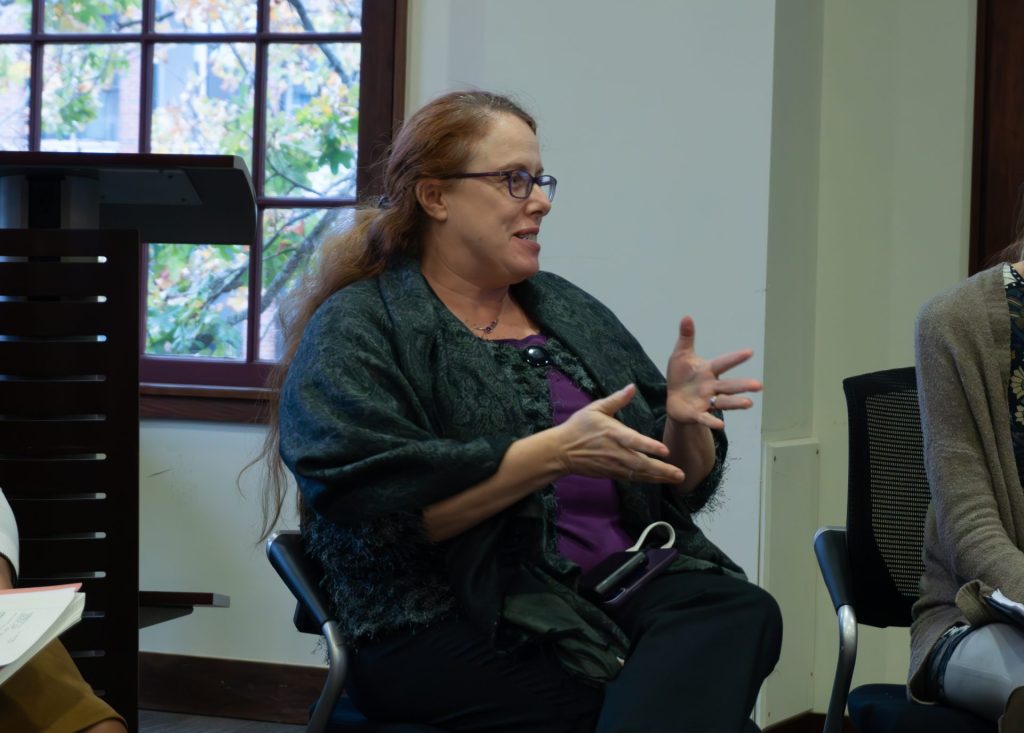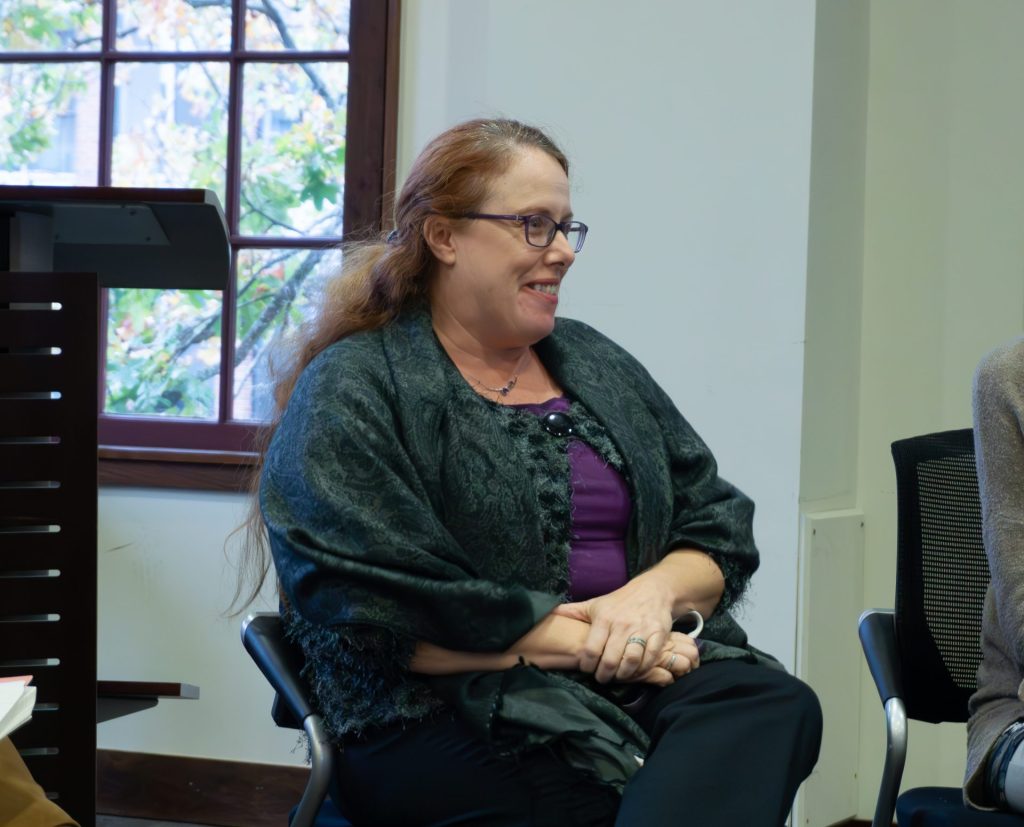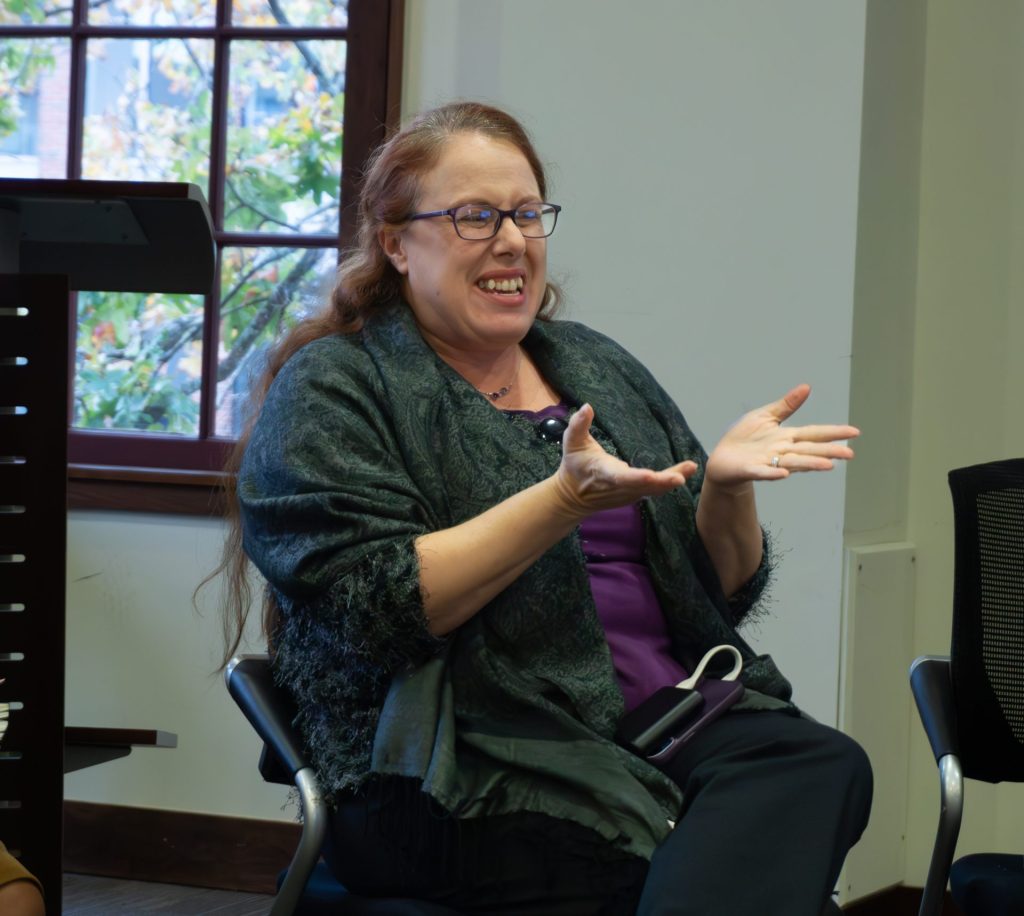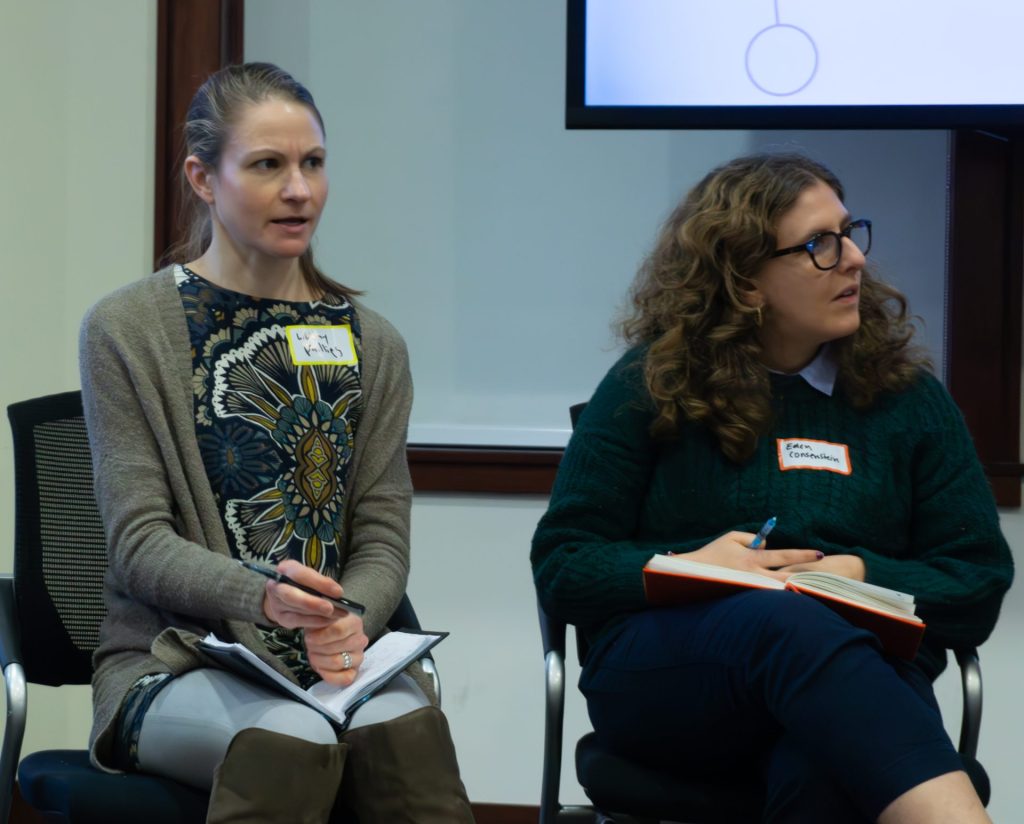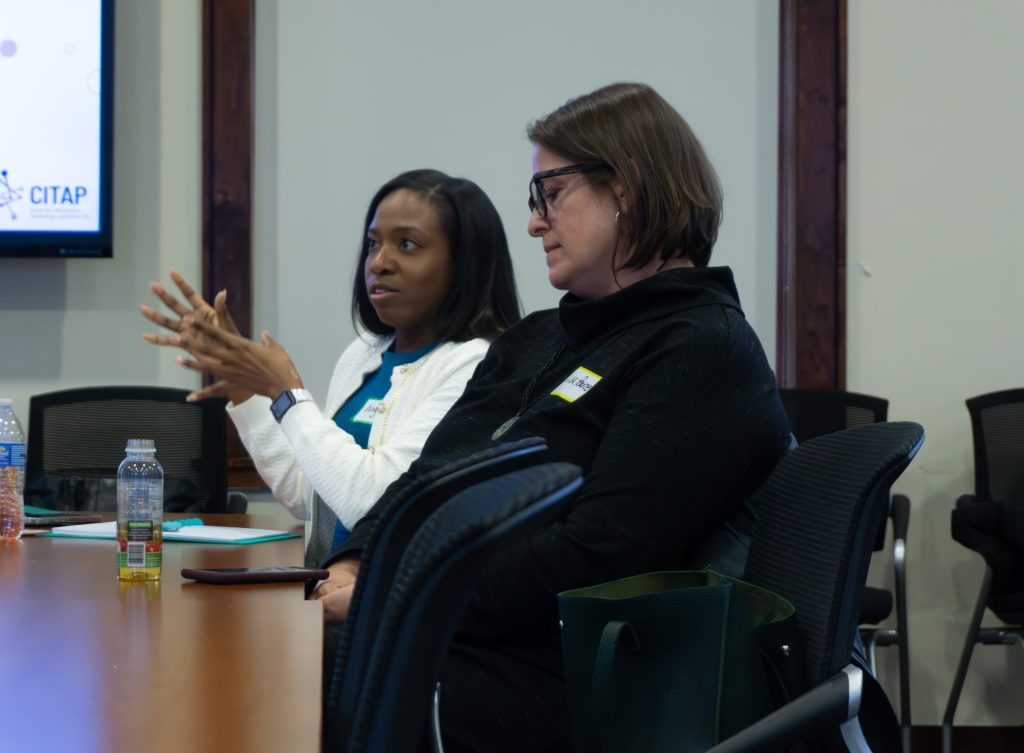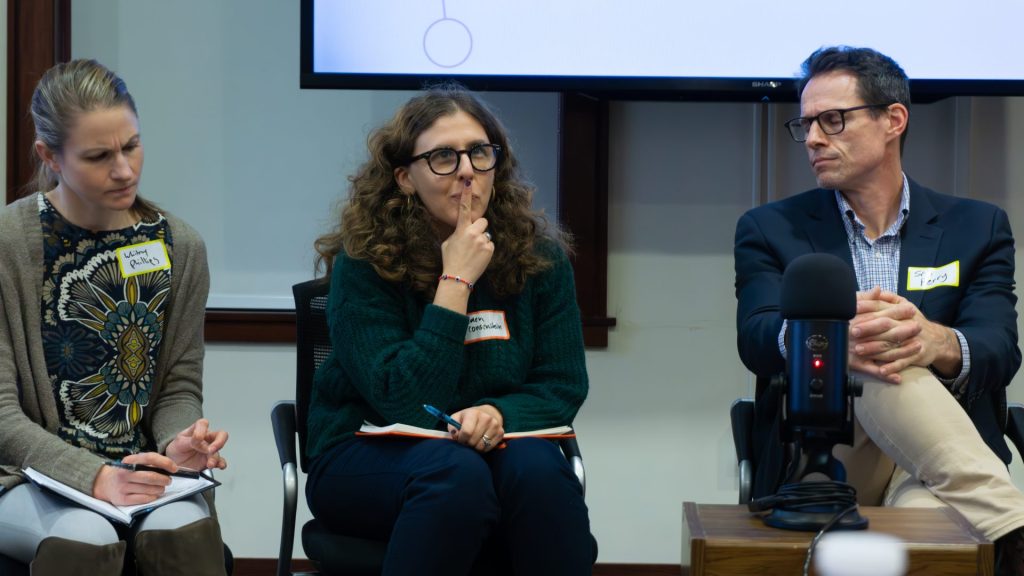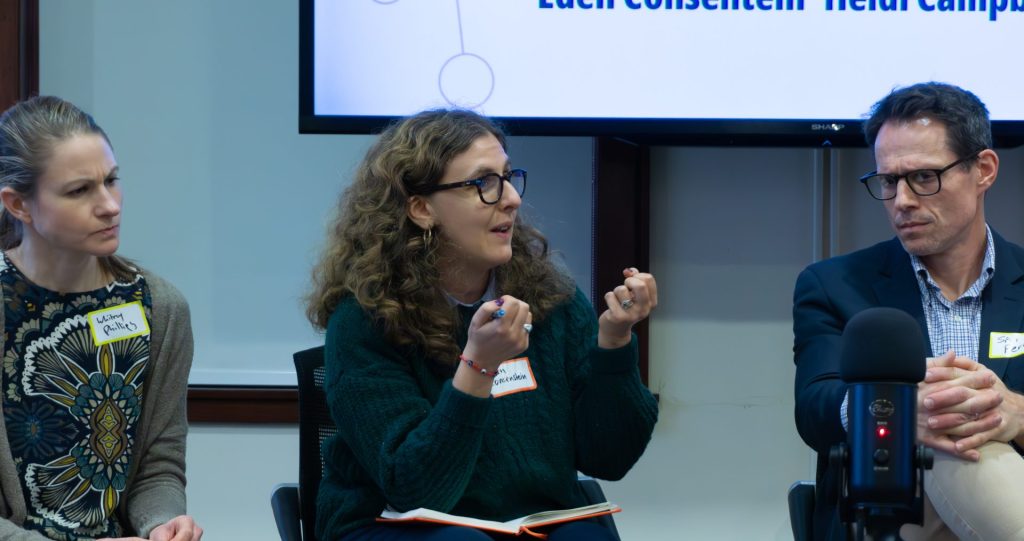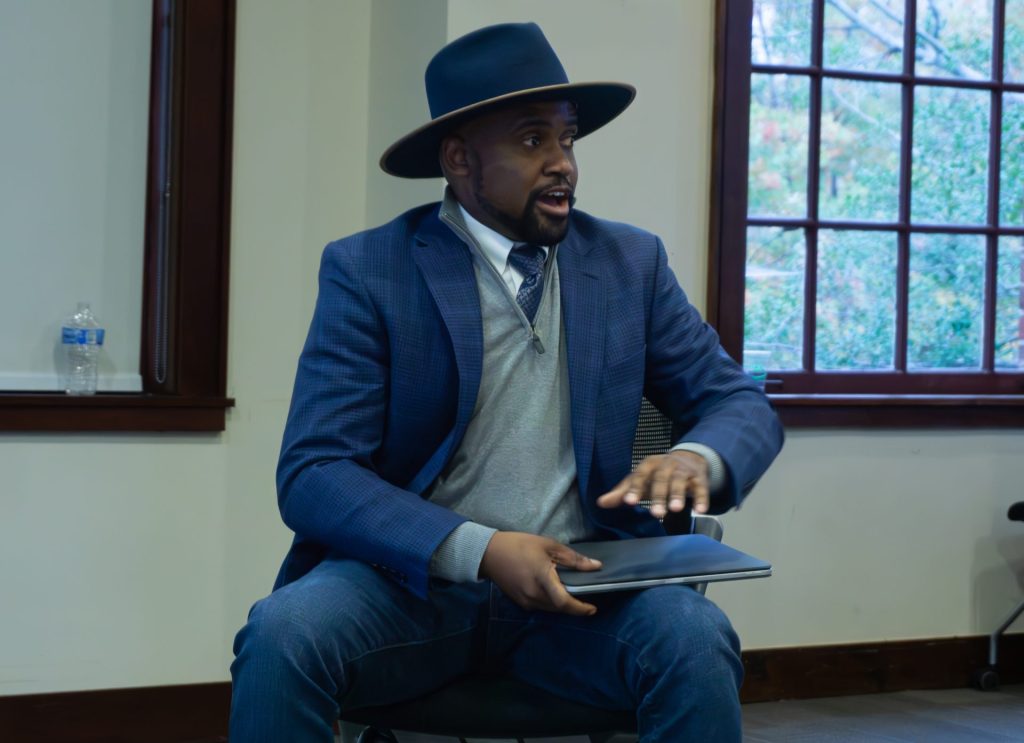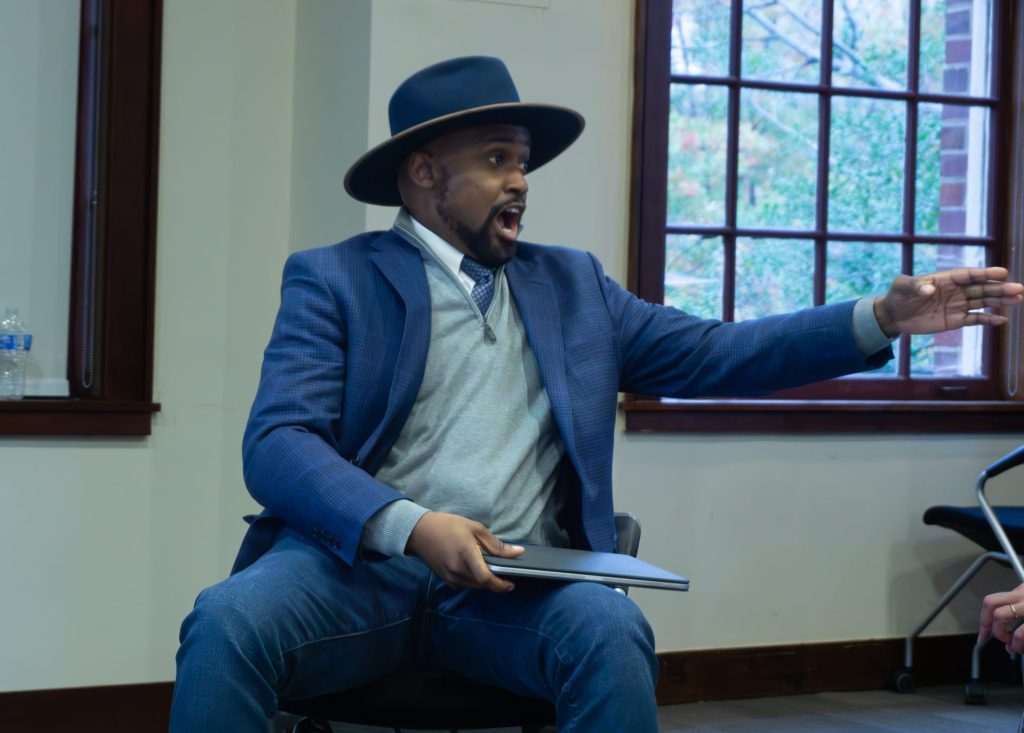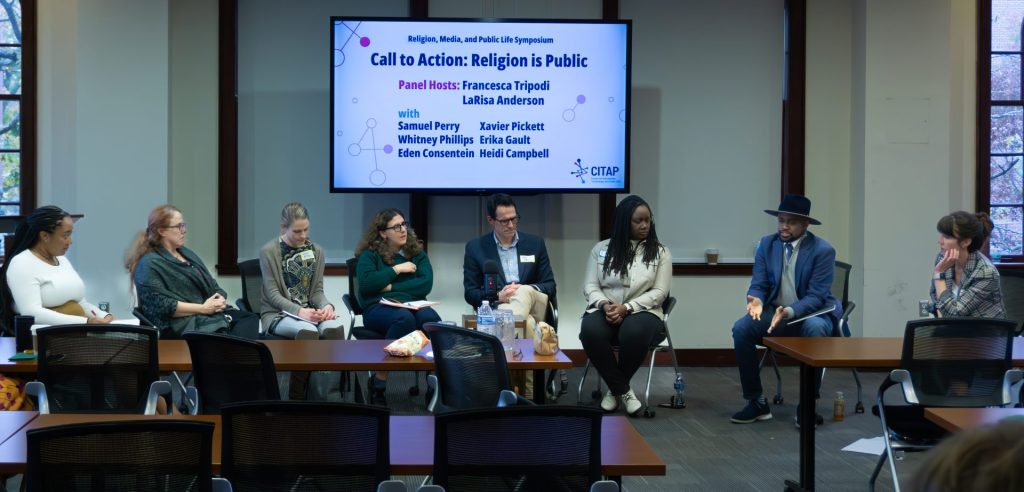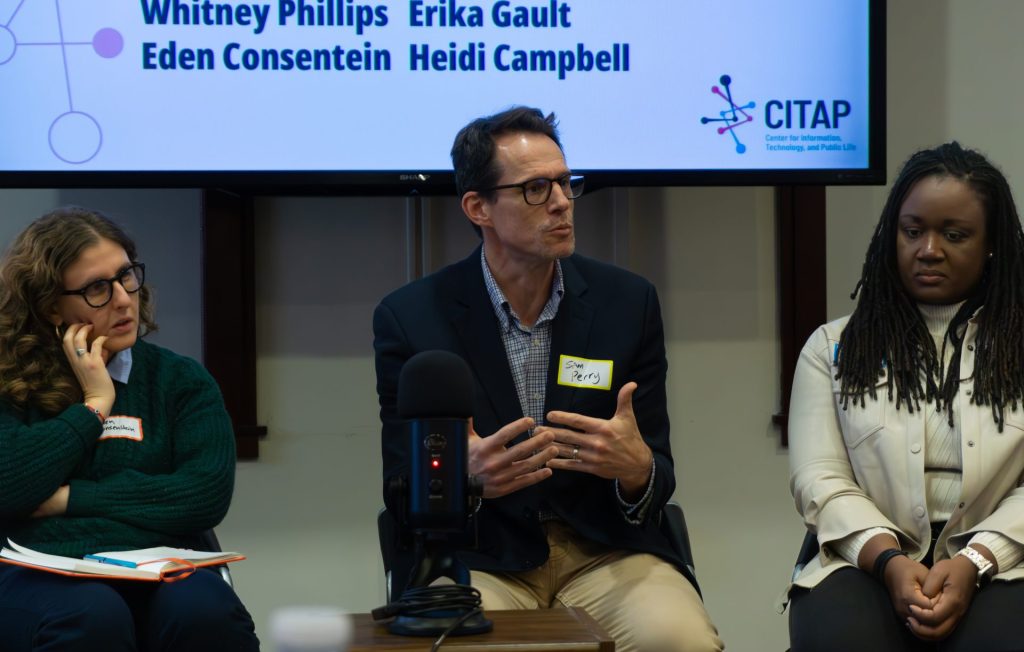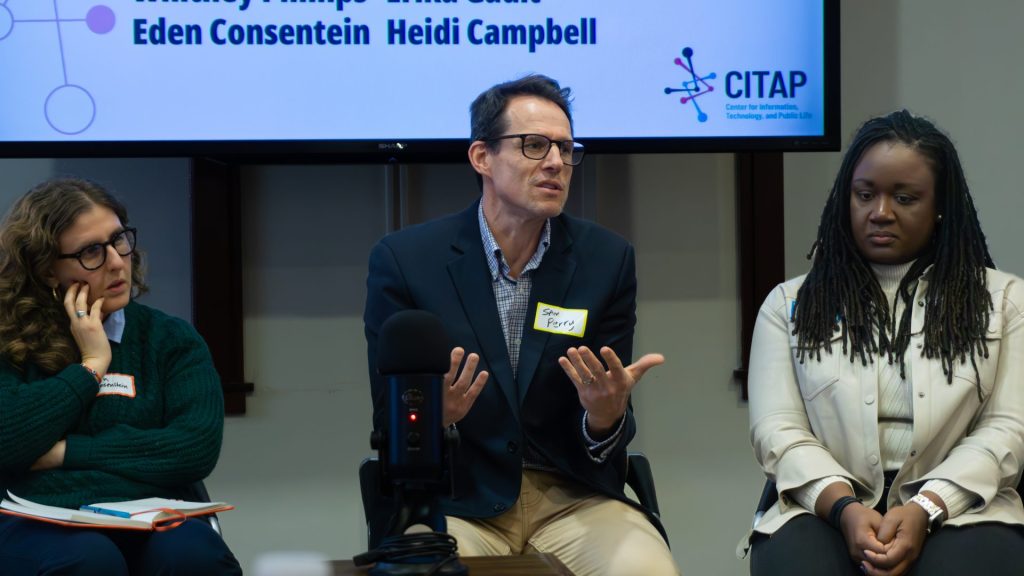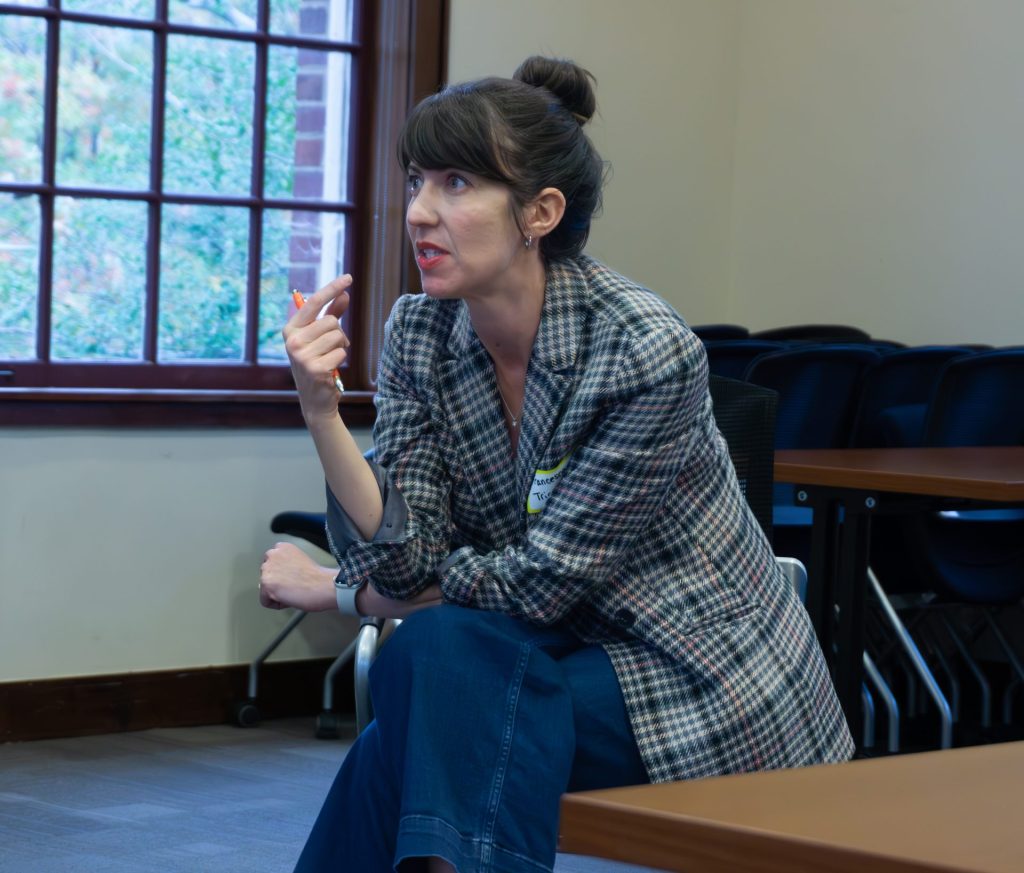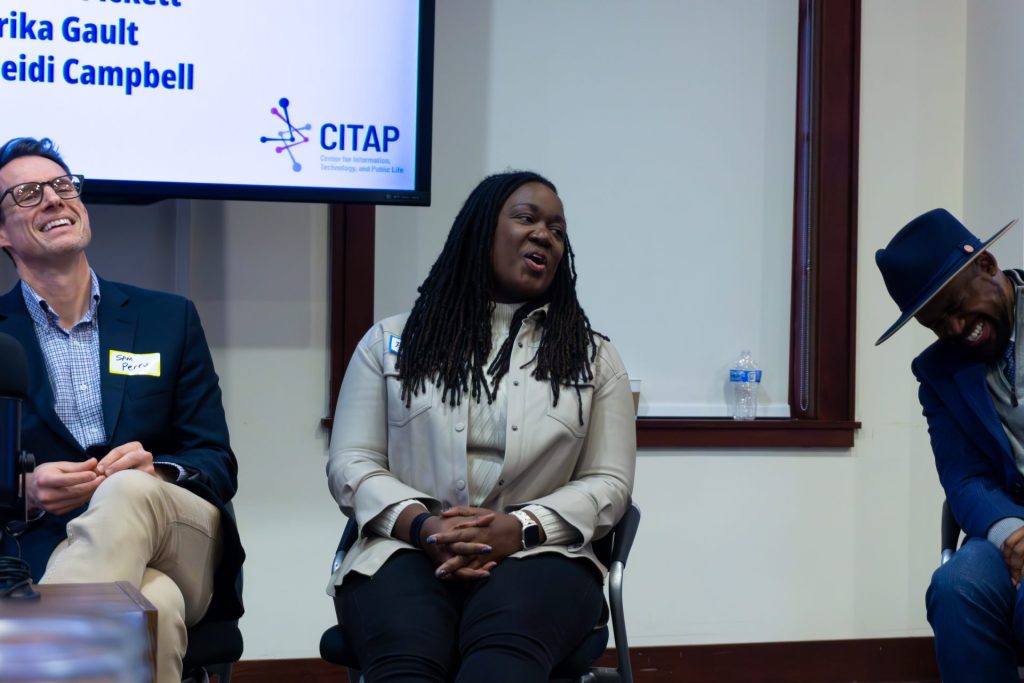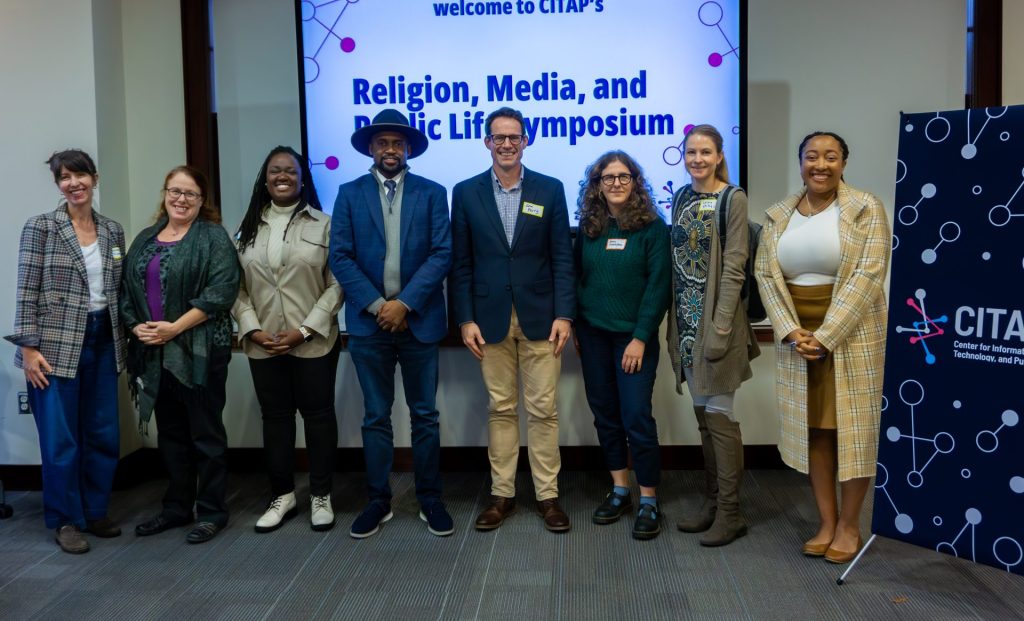
Friday, November 10, 2023
Freedom Forum Conference Center, Carroll Hall
CITAP hosted the Religion, Media, and Public Life Symposium on November 10th, which addressed the intersection of technology, American religion, and politics. Our discussions challenged the historical relationship between the American church, the State, and the hegemonic power of white Evangelicalism and white supremacist religious appeals.
These tensions are complex as the religious and racial diversity of the United States manifests in myriad forms online. Rather than asking what digital culture has done to religion in a linear progressive timeline, we queried the confounding events, historical and political moments, technological interventions, social movements, and cultural shifts that confound religion and digital culture. We considered institutional and networked religious activity. We aimed to uncover the multiple sociopolitical consequences of technological changes and religious experiences.
See highlights from the day and recordings of each panel below.
When god Goes Viral: Digital Culture and the Racial Dynamics of Religion
Hosted by CITAP Graduate Research Assistant LaRisa Anderson, the first panel of the day featured Dr. Heidi Campbell (Texas A&M University), Dr. Erika Gault (the Smithsonian Museum of African American History and Culture), and Dr. LeRhonda Manigault-Bryant (UNC-Chapel Hill). Dr. Campbell discussed her experience growing up in a “hyper-conservative, Christian nationalist community” and undergoing a “deprogramming” process that pushed her to understand how to implement similar deprogramming against online discourse rooted in religious and racialized stereotypes. Recognizing racialization impacts who is considered properly “religious” and “American,” Dr. Gault unpacked how religion and freedom are firmly intertwined in the American consciousness. Dr. Manigault-Bryant further interrogated connections between American religion and liberation, acknowledging American religious liberation has often been won “at the expense of others.” America religion is thus simultaneously liberating and a site of often racialized contestation.
Dr. Gault considered how platforms like TikTok allow users to maintain connections with the Black church when in person attendance is not possible. Having watched religious online communities emerge in niche spaces during the mid-1990s, Dr. Campbell discussed how increasing accessibility has led younger cohorts to view online communities as primary components of their religious lives. Dr. Manigault-Bryant urged consideration of varied spiritual technologies (including film) in furthering access to and engagement with embodied religious experiences, while also highlighting how movement from original contexts can lead to reinterpretations and misunderstandings of Black spiritual media. Panelists additionally discussed the role of influencers and the commodification in online religious content.
God Bless the West: White Christian Nationalism and the Evangelical Internet
Hosted by CITAP Principal Investigator Dr. Francesca Tripodi, the symposium’s second panel featured Dr. Eden Consenstein (UNC-Chapel Hill), Dr. Whitney Phillips (the University of Oregon), Dr. Xavier Pickett (Cornell University), and Dr. Samuel Perry (the University of Oklahoma). Dr. Consenstein began by affirming the encroachment of white Christian nationalism into mainstream, secular media outlets well into the 20th century—an encroachment made possible by elite credentials possessed by many white Christian nationalists. Dr. Phillips discussed how much of white Christian nationalism focuses on fear and loathing, particularly toward a devilish “liberal,” “socialist,” “communist” or otherwise “leftist” other. Considering the centrality of whiteness and its ties to American nationalism, Dr. Pickett emphasized the necessity of understanding how anti-Black racism impacts what speech is framed not only as radical, but unutterable. Tracing conservative movement from rejecting to embracing the term “Christian nationalism,” Dr. Perry reiterated the importance of understanding how this ideology operates on the premise of a white ethnoculture embodied in civic practices.
Panelists further interrogated the history of division based on a "leftist” devil in Christian Nationalism from the Red Scare onward and discussed strategies for public outreach addressing these divisions beyond academic audiences.
Call to Action: Religion is Public
In the final panel of the day, LaRisa Anderson and Dr. Tripodi jointly hosted Drs. Campbell, Gault, Pickett, Perry, Phillips, and Consenstein. In a more informal setting than previous panels, panelists and audience members discussed how to actionably move past a tendency for American society to demonize groups marginalized based on race/ethnicity, gender, and sexual orientation, and how to break the cycle of demonization. Specific emphasis was placed on inherent threats toward critique, disagreement, and the capacity to speak truth to power in American higher education and in American civic life. The importance of accessing suppressed histories through museums and other public forums facilitating public engagement with these histories was emphasized as an important component of opening dialogue and preventing ongoing demonization.
